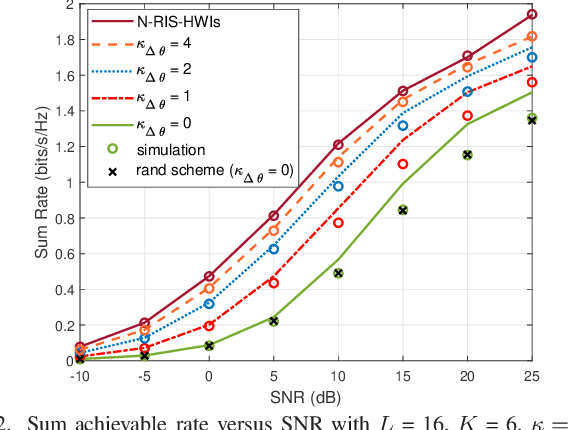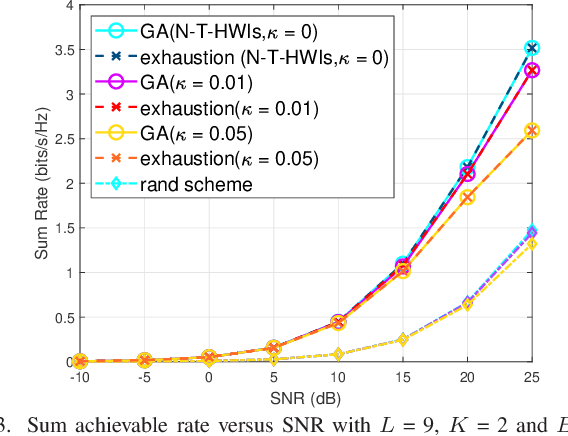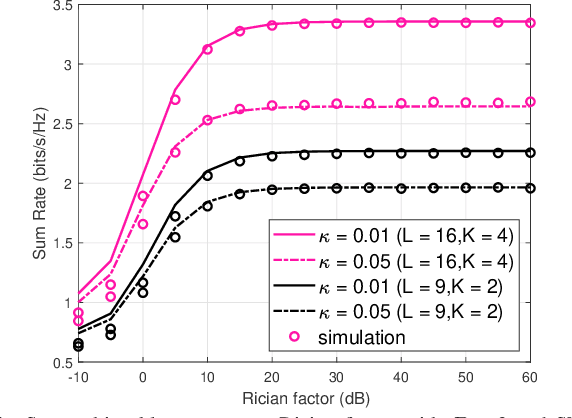RIS-Aided D2D Communications Relying on Statistical CSI with Imperfect Hardware
Paper and Code
Dec 04, 2021



In this letter, we investigate a reconfigurable intelligent surfaces (RIS)-aided device to device (D2D) communication system over Rician fading channels with imperfect hardware including both hardware impairment at the transceivers and phase noise at the RISs. This paper has optimized the phase shift by a genetic algorithm (GA) method to maximize the achievable rate for the continuous phase shifts (CPSs) and discrete phase shifts (DPSs). We also consider the two special cases of no RIS hardware impairments (N-RIS-HWIs) and no transceiver hardware impairments (N-T-HWIs). We present closed-form expressions for the achievable rate of different cases and study the impact of hardware impairments on the communication quality. Finally, simulation results validate the analytic work.
 Add to Chrome
Add to Chrome Add to Firefox
Add to Firefox Add to Edge
Add to Edge